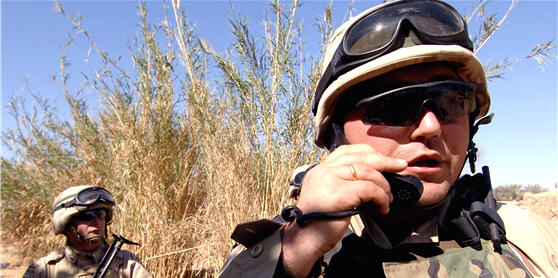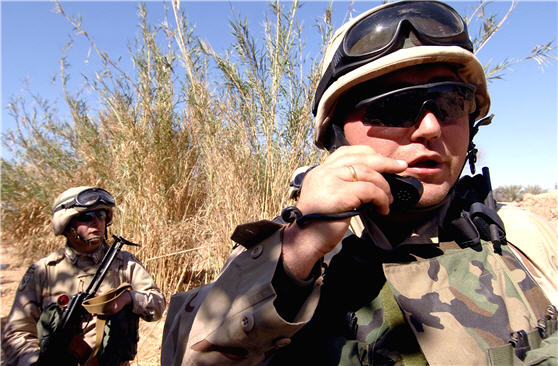
In the predawn hours of August 7, Russia invaded Georgia. Gassiev, a border guard of the separatist regime in the Georgian territory of South Ossetia, was at the southern end of the Roki Tunnel that leads from Russia. At 3:52 a.m., he used his mobile telephone to tell his supervisor: “The armor and people . . . 20 minutes ago; when I called you, they had already arrived.” The intercepted telephone call, first reported in the September 16 New York Times, explodes the myth that Georgian President Mikheil Saakashvili precipitated Russia’s assault on Georgia with an ill-conceived attack on Tskhinvali, capital of South Ossetia.
Although most believe that Russia’s invasion was disproportionate and contemptibly brutal, many also believe that Georgia triggered it. Worse than false, this notion enables western leaders to wallow in analysis and sophistry instead of looking Russian aggression squarely in the eye.
Many journalists perpetuate the myth with a formulaic sentence buried in mid-story. A few, however, embellish the falsehood, endowing it with unwarranted policy implications. “The colossal error Saakashvili committed,” writes Jeffrey Tayler, Moscow correspondent for The Atlantic, “proves that he lacks the sangfroid, judgment, and sagacity needed to govern a country in a volatile region bordering Russia…Eligibility for NATO accession should, at least in theory, stem from a prospective member state’s demonstrated ability to conduct sober foreign and defense policies.”
The London-based International Institute for Strategic Studies crammed this kind of poppycock into its yearly Strategic Survey, released last Thursday. “Georgia,” says the IISS, “has weakened its case for NATO membership…by seeking to recover its territories, taking on a declared Russian interest without the ability to do so alone and then calling on the West to sort out the mess it created.” The IISS concludes, “The policy of NATO enlargement now, we believe, would be a strategic error.”
The IISS apparently bases the conclusion now enshrined in its venerable Strategic Survey at least partly upon a snapshot obscured by the fog of war. However, the lifting fog revealed new information. The Georgian Government surveillance team informed senior officials about Gassiev’s mobile telephone conversation within hours. Then they misplaced the audio file during a hasty move from Tbilisi to Gori. This sort of thing happens in war and, says the Georgian Government, “it is possible that fresh evidence will become known in the coming days or weeks.”
However, the fact will remain that Gassiev saw Russian tanks in Georgia in the wee hours of August 7. American officials who have reviewed the recordings find them credible. New York Times reporter Dan Bilefsky ascertained with mobile telephone company MagtiCom that the times of the calls, telephone numbers and associated cell towers match the data released by the Georgian Government. Moreover, the government could not falsify the company’s records, said MagtiCom. In response, Russian Foreign Ministry spokesman Andrei Nesterenko did not challenge the intercept’s authenticity or veracity. He sneered, saying, “Allegations that they have eavesdropped on someone and heard something are simply not serious.”
Perhaps more serious is an account in Krasnaya Zvezda (Red Star), the Russian Army newspaper. “On 7 August we were ordered to move toward Tskhinvali. We were raised on an alarm and sent on a march,” said Captain Denis Sedrityi of the 135th regiment, 58th Army. When questioned by the New York Times, Krasnaya Zvezda changed the date of the Sedrityi’s account from August 7 to August 8, explaining that a sustained injury had confused the captain.
There are more accounts like this; however, the strongest argument is Russian preparation for this invasion. Russia invaded with mechanized infantry and armor massed at the north end of the Roki Tunnel. Russian aircraft methodically attacked military, communications and strategic economic targets, mixed with aerial bombardment of innocent civilians.
Meanwhile, Russia massed another force at Upper Larsi, a border crossing in the Caucasus Mountains, east of the tunnel. It held this force in reserve, outside Georgia. However, 4000 naval infantry troops ferried from Sevastopol, headquarters of the Russian Black Sea Fleet, to Ochamchire, a former Soviet naval base in Abkhazia, Georgia’s other breakaway province. Combined with paratroopers who had been masquerading for about three months as peacekeepers, they opened a second land front against Georgia.
Russian naval forces proceeded to set up an illegal blockade of Georgia.
The claim that all this was in response to a Saakashvili move on Tskhinvali is absurd. A combined arms operation of this scale and complexity required weeks to plan and execute. Moscow unleashed its forces early on August 7, while most of the world was at the beach and US President George W. Bush traveled from Bangkok to Beijing.
Saakashvili proposed a ceasefire that evening, but, he said, “It looks like the decision had been made in Moscow prior to that, and nothing was going to change it on the ground.”
Gassiev’s call should wake us all up to look squarely in the eye of Russian aggression.
David J. Smith is Director, Georgian Security Analysis Center, Tbilisi, and Senior Fellow, Potomac Institute for Policy Studies, Washington. This column originally appeared in 24 Saati (24 Hours), Tiblisi’s major newspaper. U.S. Army photo by SGT Timothy Kingston: A company commander from the 13th Georgian Army Battalion radios in a situation report while conducting a joint clearing operation with Iraqi soldiers in Ali Shaheen, Iraq, March 7, 2008.
Image: georgia-captain-radio.jpg
